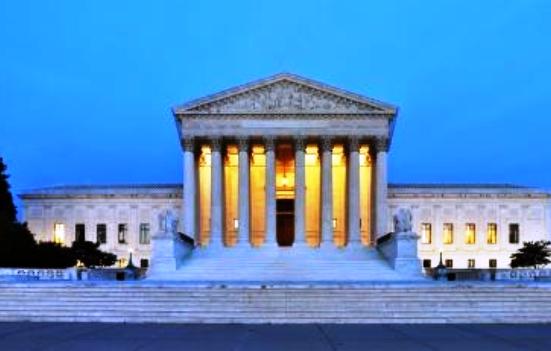Anushka Mansharamani
An infrequent medieval Christian art collection was sold to the Nazis in 1935 by Jewish art dealers. A dispute over this rare collection has taken place for the past 12 years, and the dispute was heard by the highest court in the United States today.
The defence lawyers, in this case, have stated that this case could unlock suspiring restitution battles from all over the world.
The Supreme Court has likely heard the oral arguments to decide whether the case can be brought up in the US courts for the church reliquaries by the dealer’s heirs.
These church reliquaries are known as the Guelph Treasure from Germany. It is named after the princely House of Guelph of Brunswick-Lüneburg. The Guelph Treasure embraces 42 objects which were made between the 11-15th centuries.
This medieval Christian art collection comprises a crustlike cross which contains crystal rocks and bone fragments. These crystal rocks and bone fragments are said to be of the saints which were brought back from the crusades.
The plaintiff, in this case, is the successors of Saemy Rosenberg, the Jewish dealer who acquired the Guelph Treasure originally. The Jewish dealer bought it in 1929 for 7.5m Reichsmark (D – Mark).
As per the plaintiffs, the progenitor of the Guelph Treasure was ready to sell it for 4.25 Reichsmark in 1934. The demand for the requite was gauged to be $260m.
The technical owner of the Guelph Treasure was a semi-private foundation known as the Prussian Cultural Heritage. It had sworn to cling to the Washington principle laid down for the Nazi art.
The Washington principles were laid down in 1998 and comprised 2000 books by more than 350 artists.
According to the Prussian Cultural Heritage Foundation about the Guelph Treasure, president Hermann Parzinger said that research has established that the Jewish dealers tried to sell all the reliquaries in the United States, but failed to do so as they struggled to obtain a good price for the reliquaries in the market as in 1929 the stock market was down.
The Prussian Cultural Heritage Foundation argues that the sale of the Guelph Treasure was the result of several negotiations that took place, and, therefore, the Jewish dealer received the rare medieval Christian art collection.
The main work that the foundation did was restitution, and they kept a check on the collection they have to make sure that the previous owner did not sell it in a corrupt manner.
The value of the product would be irrelevant according to the foundation, and they stated that “The key question we ask is whether a work in our collection was withdrawn from its previous owner as a result of persecution.”
The foundation claims that all the works have been seized fairly, unlike the Guelph Treasure.
The main reason for the case being heard in the US court is the result of a clause mentioned in the US’s 1976 Foreign Sovereign Immunities Act.
The clause that is being referred to states an “expropriation exception” for lawsuits related to taking of property, which violates international law. The act prohibits foreign agencies and states from being sued in the US courts.
Earlier, the plaintiffs further stated that the reason that the Guelph Treasure in violation of the international law as it is a part of the museum in the United States (Holocaust museum).
They further also stated all this had started when the rise of Hitler’s era took place and the assassination of the Jews took place in 1939.
Earlier, the plaintiff mainly argued that the sale violated international law as the final decision was taken by Hermann Göring.
This argument put forth by the plaintiff side has been agreed upon by two US courts. Aggrieved by the decision of the lower courts, the foundation appealed to the Supreme Court of the US.
Some legal experts have observed that jurisdiction of the fate of the Guelph Treasure lies with the German Courts and not the US courts and indirectly feel that this could give rise to the expansion of the jurisdiction of the US courts.
According to the discussions taken place regarding the Guelph Treasure, the defendant’s side argues that using this clause of the Foreign Sovereign Immunities Act can be used to attract all other matters of International disputes in the US courts.
Jonathan Freiman (lawyer) replied to the argument and stated that for the longest of times, the US has relied on other countries taking care of their legal affairs or disputes, and, therefore, this case will not change that.
It was earlier observed that taking this case up would allow future foreigners to use the US court through that clause to sue the people of their own country, and this could thereby risk the US courts to be a defendant in their courts for some historical injustice that has taken place previously.
This point has been further stated by various other legal experts and one of the judges from the lower court, who was a part of the decision-making process, stated that taking this case up could put an extensive strain on the diplomatic relations with other foreign countries.
The case will be disputed by the Supreme Court today, and the main question as to whether the US court has jurisdiction in these cases would be decided.

